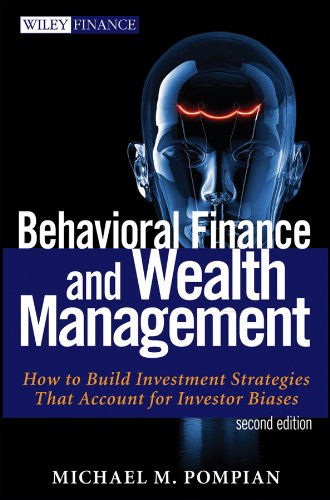Top Behavioral Finance Textbooks
This webpage provides an up-to-date list of the top behavioral finance textbooks.
Rankings are based upon the number of syllabi in which a behavioral finance book has appeared since 2015 (source: opensyllabus.org).
The most recent edition of each book is provided.
Behavioral Finance: Psychology, Decision-Making, and Markets

Author(s): Lucy Ackert, Richard Deaves
Publication date: 2009-09-23
ISBN: 0324661177
ISBN-13: 9780324661170
Inefficient Markets: An Introduction to Behavioral Finance (Clarendon Lectures in Economics)

Author(s): Andrei Shleifer
Publication date: 2000-04-20
ISBN: 0198292279
ISBN-13: 9780198292272
Behavioral Finance and Wealth Management: How to Build Investment Strategies That Account for Investor Biases

Author(s): Michael M. Pompian
Publication date: 2012-01-03
ISBN: 1118014324
ISBN-13: 9781118014325
Understanding how to use behavioral finance theory in investing is a hot topic these days. Nobel laureate Daniel Kahneman has described financial advising as a prescriptive activity whose main objective should be to guide investors to make decisions that serve their best interests. The reality? That's easier said than done. In the Second Edition of Behavioral Finance and Wealth Management, Michael Pompian takes a practical approach to the growing science of behavioral finance, and puts it to use for real investors. He applies knowledge of 20 of the most prominent individual investor biases into "behaviorally-modified" asset allocation decisions. Offering investors and financial advisors a "self-help" book, Pompian shows how to create investment strategies that leverage the latest cutting edge research into behavioral biases of individual investors. This book:
- Shows investors and financial advisors how to either moderate or adapt to behavioral biases, in order to improve investment results and identifies "the best practical allocation" for investment portfolios. Using these two sound approaches for guiding investment decision-making, behavioral biases are incorporated into the portfolio management process
- Uses updated cases studies to show investors and financial advisors how an investor's behavior can be modified to improve investment decision-making
- Provides useable methods for creating behaviorally modified investment portfolios, which may help investors to reach their long term financial goals
- Heightens awareness of biases so that financial decisions and resulting economic outcomes are improved
- Offers advice on managing the effects of each bias in order to improve investment results
This Second Edition illustrates investors' behavioral biases in detail and offers financial advisors and their clients practical advice about how to apply the science of behavioral finance to improve overall investment decision making.
Beyond Greed and Fear: Understanding Behavioral Finance and the Psychology of Investing

Author(s): Hersh Shefrin
Publication date: 2002-09-26
ISBN: 0195161211
ISBN-13: 9780195161212
The Psychology of Investing

Author(s): John R. Nofsinger
Publication date: 2017-08-17
ISBN: 041539757X
ISBN-13: 9780415397575
While traditional finance focuses on the tools used to optimize return and minimize risk, this book explains how psychology can affect our decisions more than financial theory. Covering the ways investors actually behave, this is the first book of its kind to delve into the ways biases influence investment behavior, and how overcoming these biases can increase financial success.
Now in its sixth edition, this classic text features:
- An easy-to-understand structure, illustrating psychological biases as everyday behavior; analyzing their effect on investment decisions; and concluding with academic studies that exhibit real-life investors making choices that hurt their wealth.
- A new chapter on the biology of investment, exploring the latest research on genetics, neuroscience, and how hormones, aging, and nature versus nurture inform our investment behavior.
- An additional strategy for controlling biases, helping readers understand the psychology that motivates markets and how to address it.
- Experiential examples, chapter summaries, and end-of-chapter discussion questions to help readers test their practical understanding.
Fully updated with the latest research in the field, The Psychology of Investing will prove fascinating and educational¬ for advanced students in investment, portfolio management, and behavioral finance classes as well as investors and financial planners.